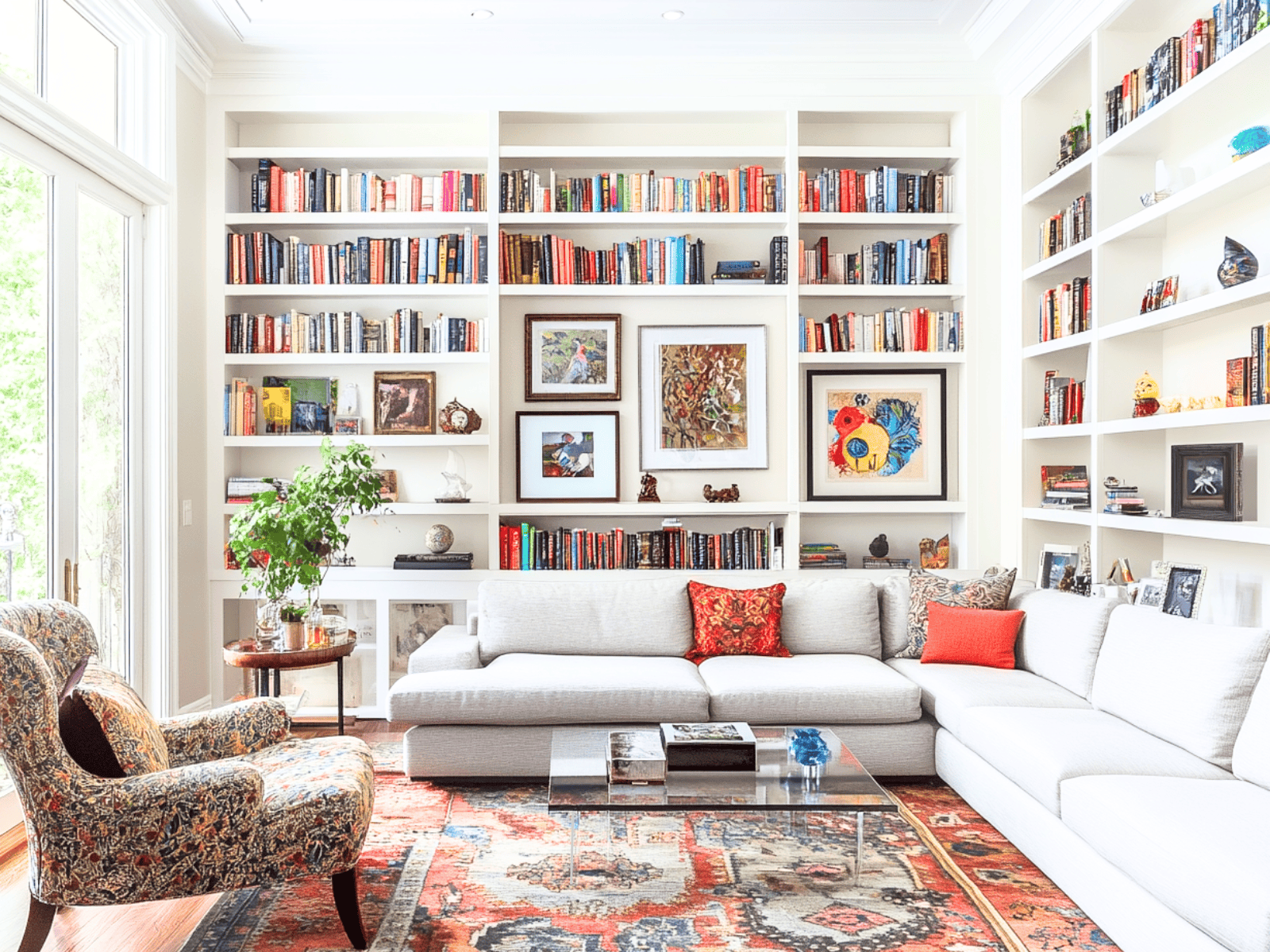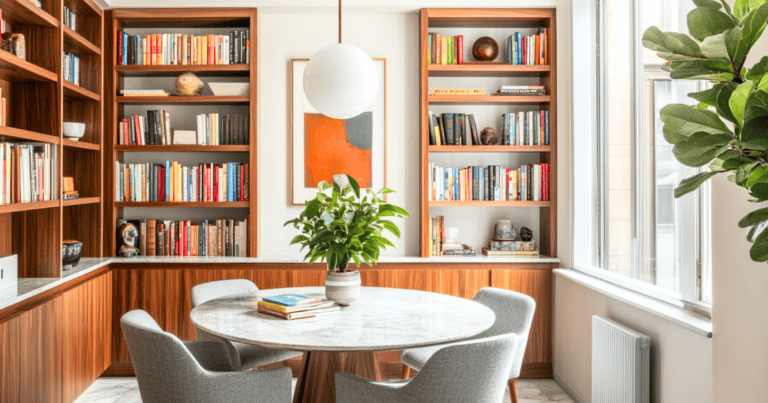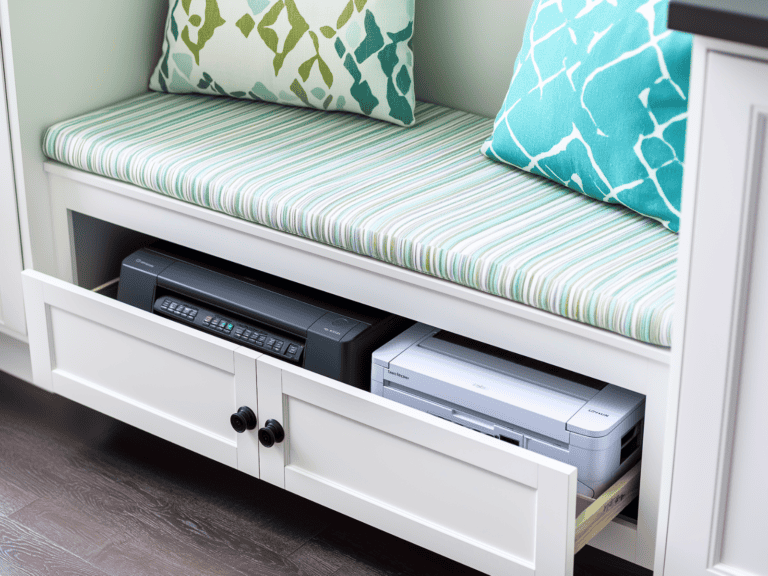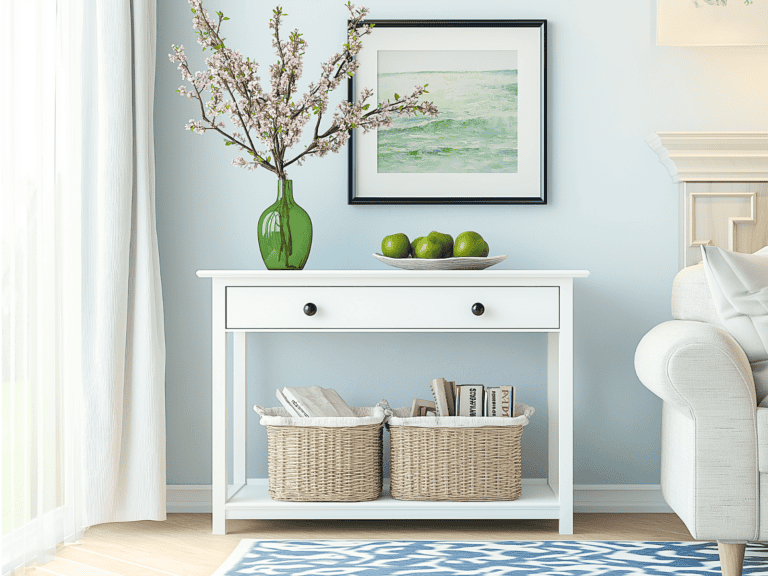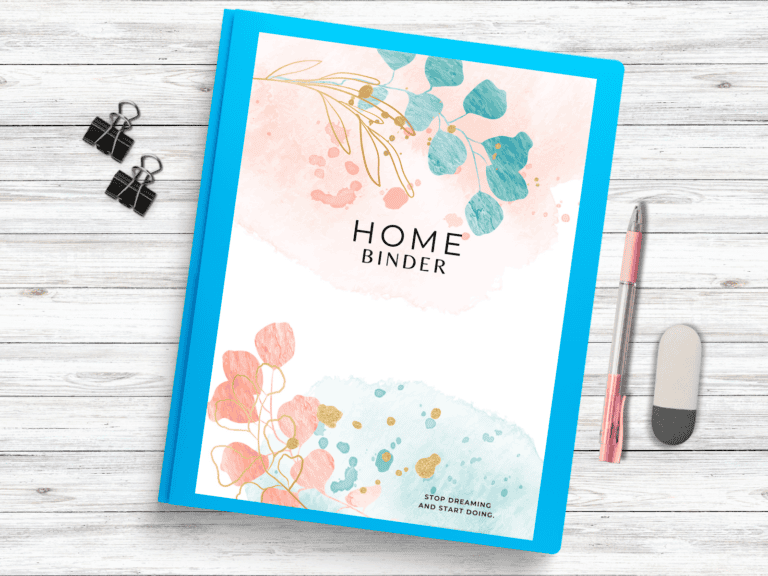10 Best Ways to Maximize Your Home’s Vertical Space
Look up! Your home’s untapped potential is right above you. Vertical space is the secret weapon in home organization that many overlook. It’s not just about what’s on your floors or countertops – the walls, corners, and ceiling areas offer vast opportunities for storage and design.
Why focus on vertical space? By utilizing your home’s height, you instantly multiply your storage options, reduce clutter on horizontal surfaces, and make rooms feel more open and breathable. Vertical organization improves functionality and enhances aesthetics, drawing the eye upward and creating visual interest.
The benefits of maximizing vertical space include:
- Increased storage capacity
- Improved room aesthetics
- Better use of limited square footage
- Enhanced organization and accessibility
- Freed-up floor space for living and moving
By thinking vertically, you’re not just organizing – you’re transforming how you live in your space. Ready to reach new heights in home organization? Let’s explore ways to make the most of your home’s vertical space.
This post contains affiliate links. For more information, see my disclosures here.
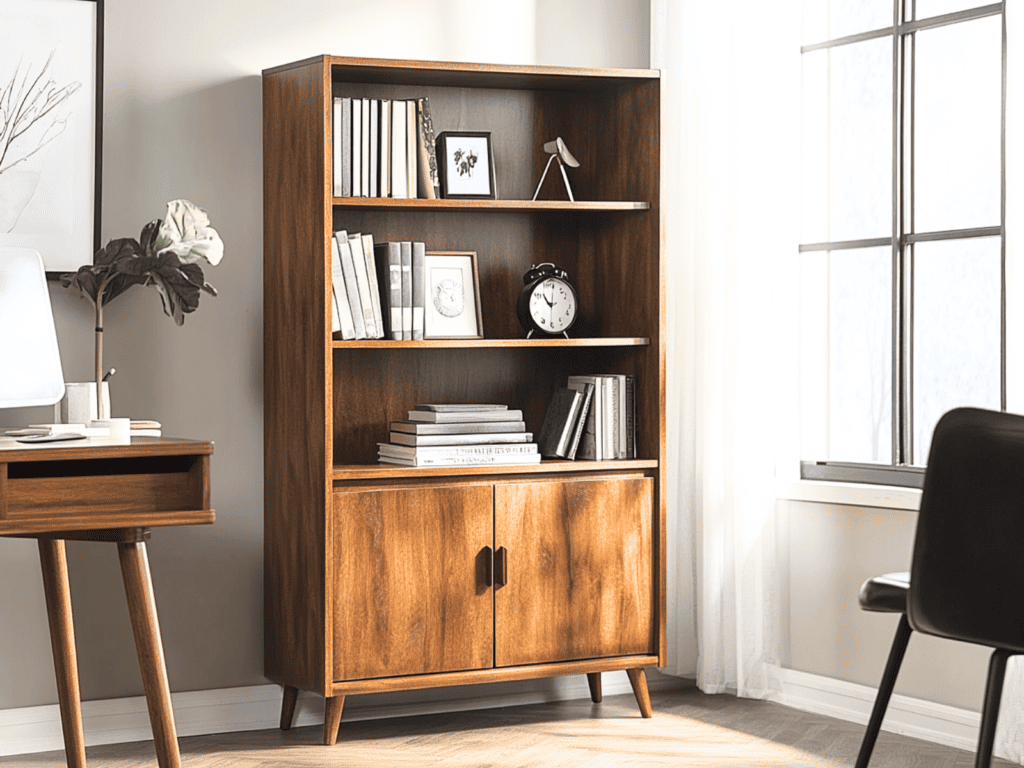
1. Maximize Vertical Storage with Tall Shelving Solutions
Types and Options
Tall shelves come in many forms. Floor-to-ceiling units use every inch. Narrow bookshelves fit in tight spots. Modular systems let you customize. Each type serves a purpose.
Selection and Installation Tips
Measure your space first. Consider ceiling height and wall width. Check weight limits for each shelf. Use a stud finder for wall-mounted units. Get help for heavy installations.
Organizational Strategies
Group similar items together. Use boxes for small things. Keep everyday items at eye level. Put less-used stuff up high. Label everything clearly.
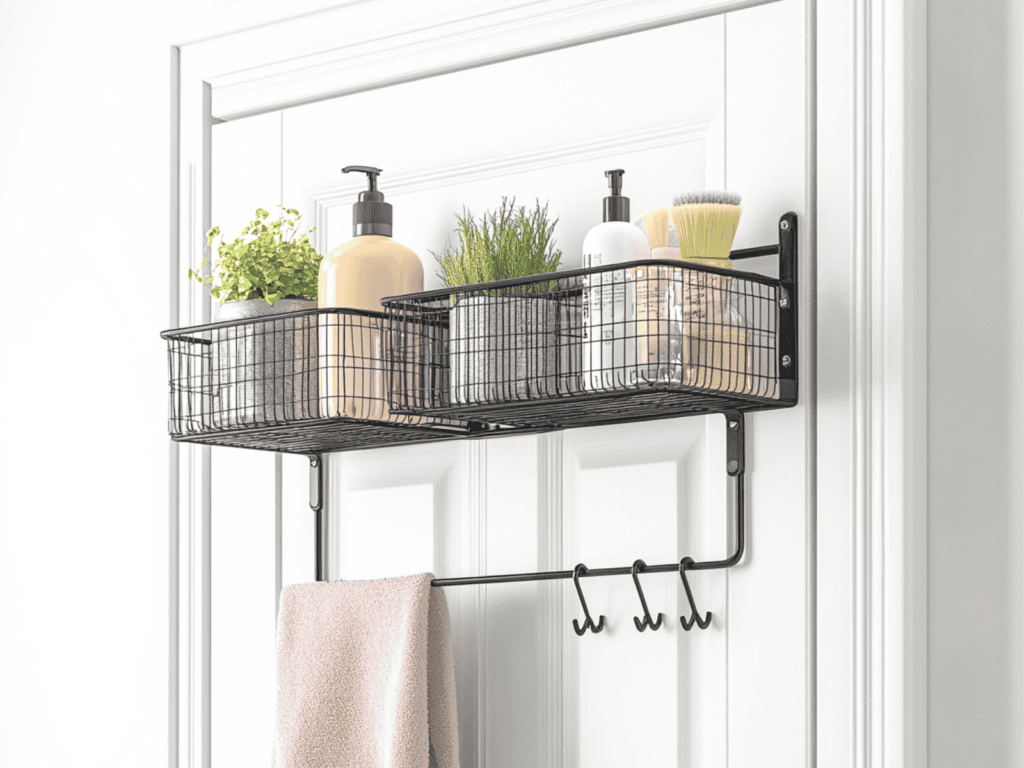
2. Utilize Over-the-Door Organizers
Types and Options
Pocket organizers hold small items. Hook systems are great for coats and bags. Shelving units work for heavier objects. Some organizers combine all three.
Selection and Installation Tips
Check your door’s thickness. Ensure the organizer fits. Mind the weight limit. Install carefully to avoid damage. Test the door’s movement after installation.
Organizational Strategies
Sort items by use. Keep frequently used things at eye level. Use clear pockets for visibility. Rotate seasonal items. Clean and reorganize regularly.
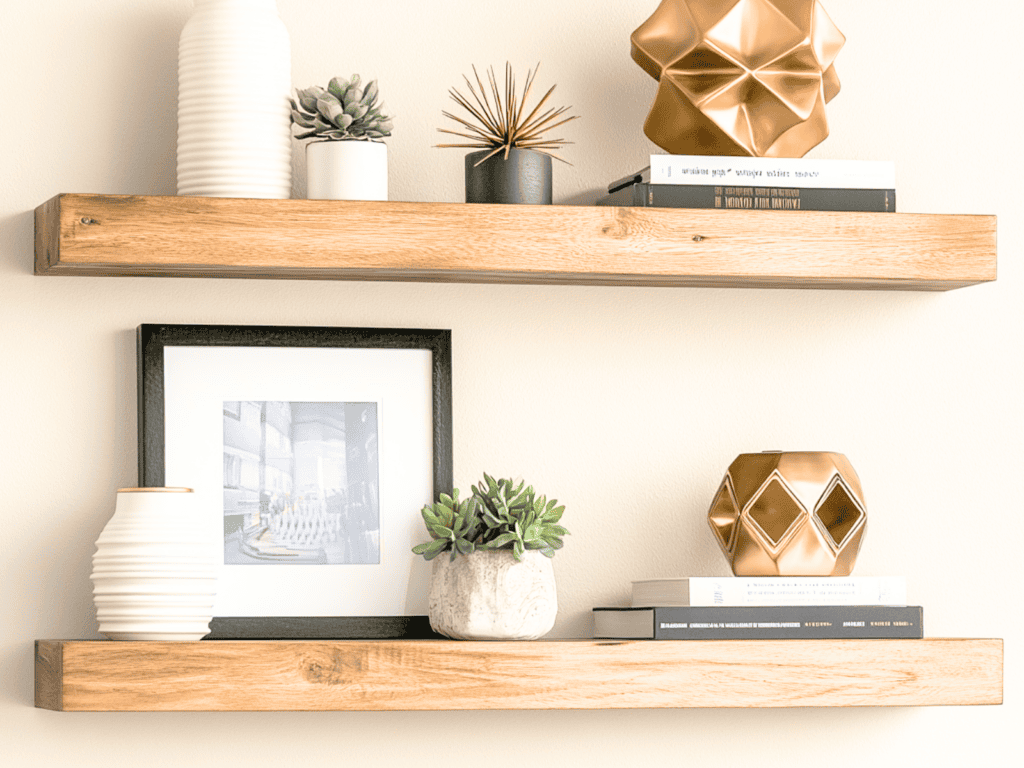
3. Implement Versatile Shelf Options
Types and Options
Floating shelves look sleek, ladder shelves add style, and corner shelves use awkward spaces. Adjustable track systems offer flexibility, and each type fits different needs.
Selection and Installation Tips
Choose shelves that match your decor. Check weight limits carefully. Use proper wall anchors. Install at the right height for easy reach. Consider professional help for tricky installations.
Organizational Strategies
Mix decorative and functional items. Use bookends for stability. Incorporate baskets for small things. Arrange items in odd numbers. Adjust shelf layout as needs change.
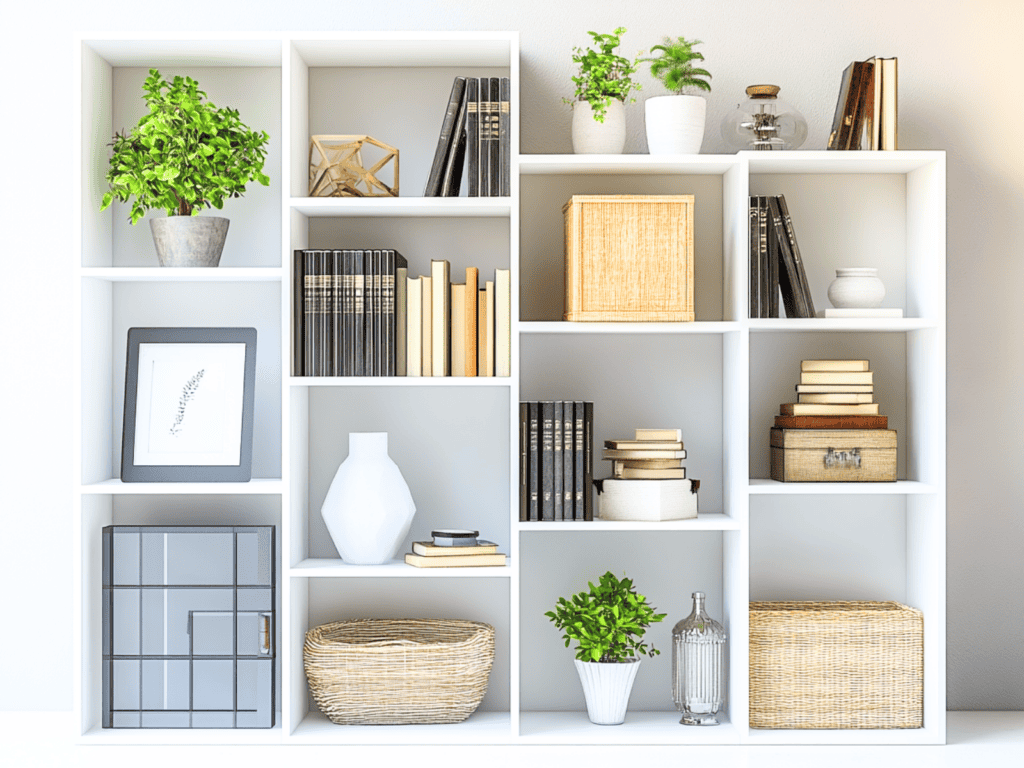
4. Adopt Vertical Storage Systems
Types and Options
Modular cubes stack easily. Floor-to-ceiling closet systems maximize space. Pegboards hold tools and crafts. Wall-mounted rails with hooks are versatile. Each system serves specific needs.
Selection and Installation Tips
Assess your storage needs first. Measure your space accurately. Choose systems that can grow with you. Follow installation instructions carefully. Use proper tools for a secure fit.
Organizational Strategies
Group like items together. Use clear containers for visibility. Label everything clearly. Keep frequently used items accessible. Reassess and reorganize periodically.

5. Incorporate Vertical Garden Systems
Types and Options
Wall-mounted planters add greenery, hanging pots save floor space, tier stands work for herbs, and living walls make a statement. Each option brings nature indoors.
Selection and Installation Tips
Choose indoor-thriving plants. Ensure your wall can support the weight. Use proper mounting hardware. Consider light and water needs. Start small and expand gradually.
Care and Maintenance Strategies
Water plants regularly, check for proper drainage, prune as needed, rotate plants for even growth, watch for pests, and clean leaves to keep plants healthy.
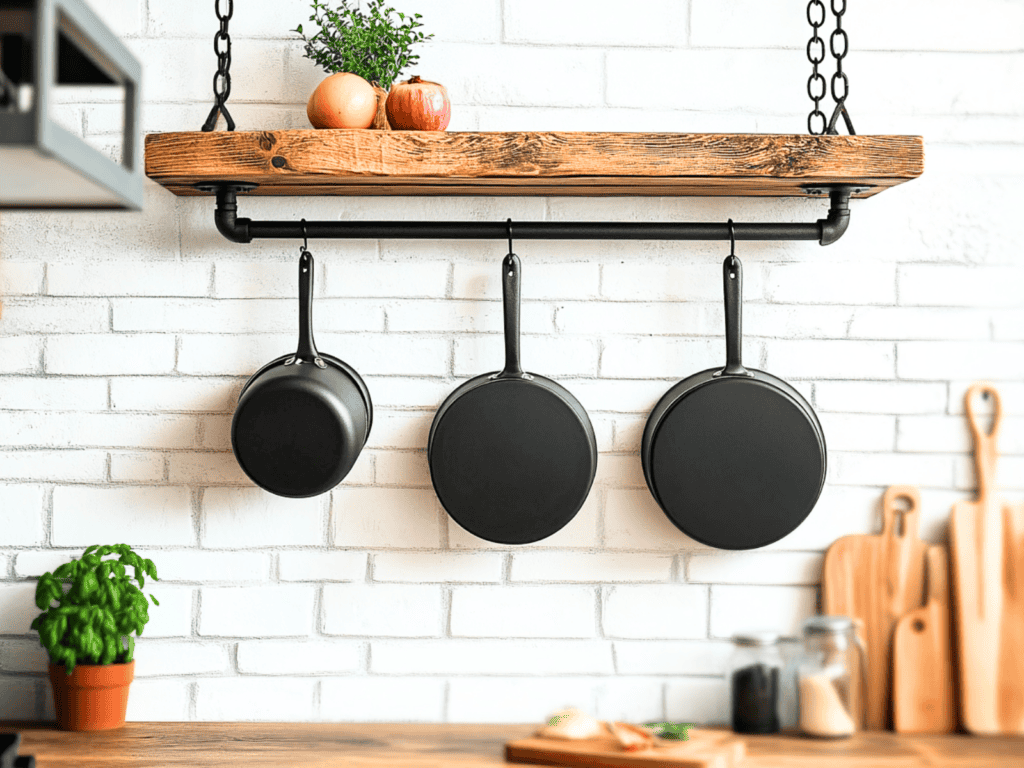
6. Hang Pots and Pans from the Ceiling
Types and Options
Ceiling-mounted pot racks come in various styles. Linear racks work well over kitchen islands, circular racks fit in corners, and wall-mounted rails offer flexibility. Each type frees up cabinet space.
Selection and Installation Tips
Choose a rack that matches your kitchen style. Ensure your ceiling can support the weight. Use proper anchors and studs for installation. Consider the height for easy reach. Leave enough headroom to avoid bumps.
Organizational Strategies
Arrange pots and pans by size. Keep frequently used items easily accessible. Use S-hooks for utensils and smaller items. Color code for visual appeal. Rotate items seasonally if needed.
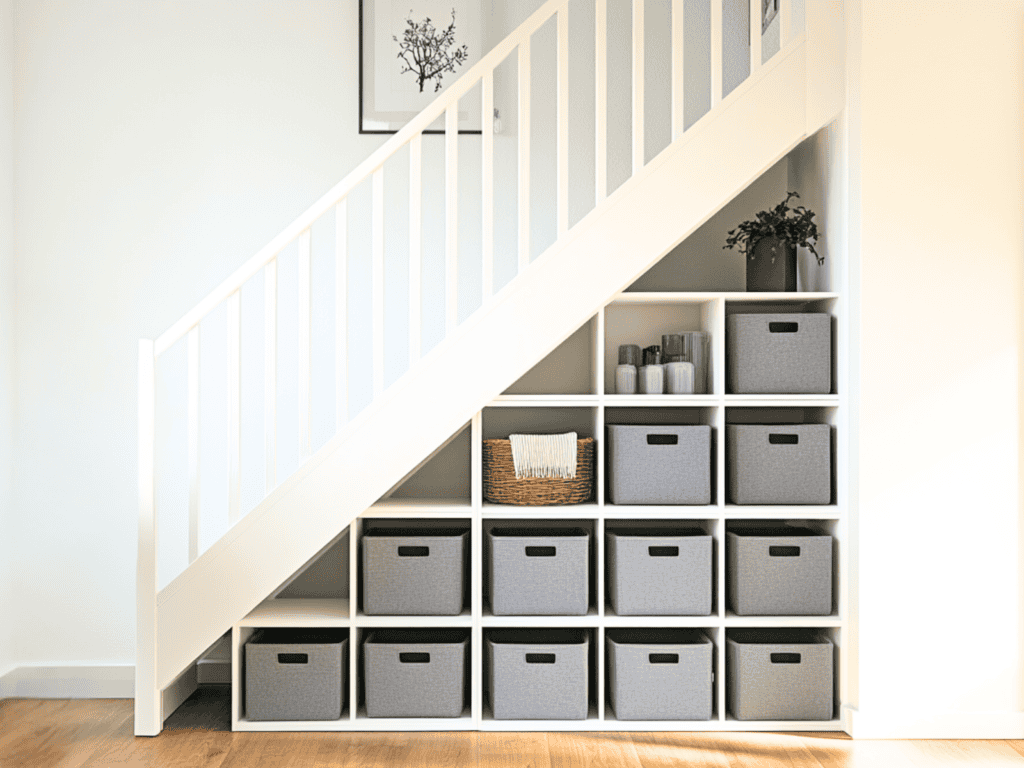
7. Maximize Staircase Integration
Types and Options
Under-stair storage units maximize space. Floating shelves on stairway walls add style. Pull-out drawers in risers hide clutter. Each option turns dead space into storage gold.
Selection and Installation Tips
Measure your staircase carefully. Consider the slope for shelving. Use sturdy materials for safety. Hire professionals for complex installations. Ensure storage doesn’t impede stair use.
Organizational Strategies
Use under-stairs space for seasonal items. Install a shoe rack near the entrance. Create a mini library on stairway shelves. Label drawers clearly. Keep frequently used items easily accessible.
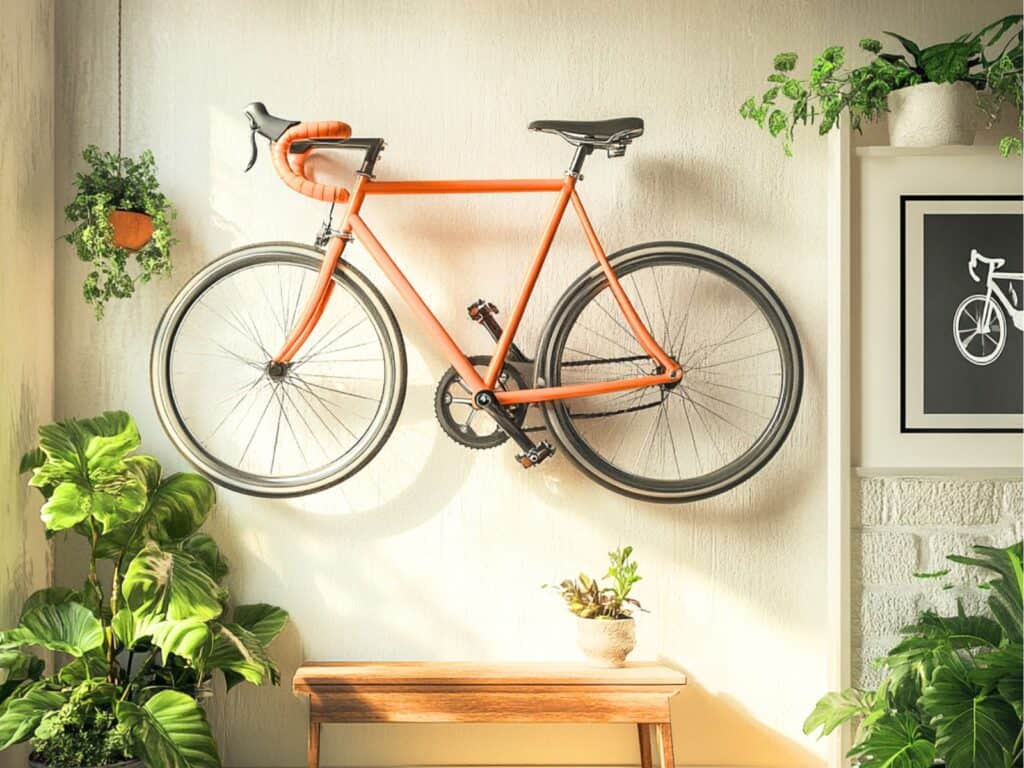
8. Implement Vertical Bike Storage
Types and Options
Wall-mounted hooks hold bikes securely, ceiling hoists save floor space, freestanding racks work for multiple bikes, and vertical bike stands are great for small spaces. Each type suits different needs.
Selection and Installation Tips
Choose a system that fits your bike type. Ensure walls or ceilings can support the weight. Use proper anchors for installation. Consider the height for easy access. Leave enough space around bikes.
Maintenance and Accessibility Strategies
Clean bikes before hanging them to prevent dirt buildup. Use a pulley system for heavy bikes. Store helmets and gear nearby. Rotate bike positions to distribute wear. Keep a step stool handy for high storage.
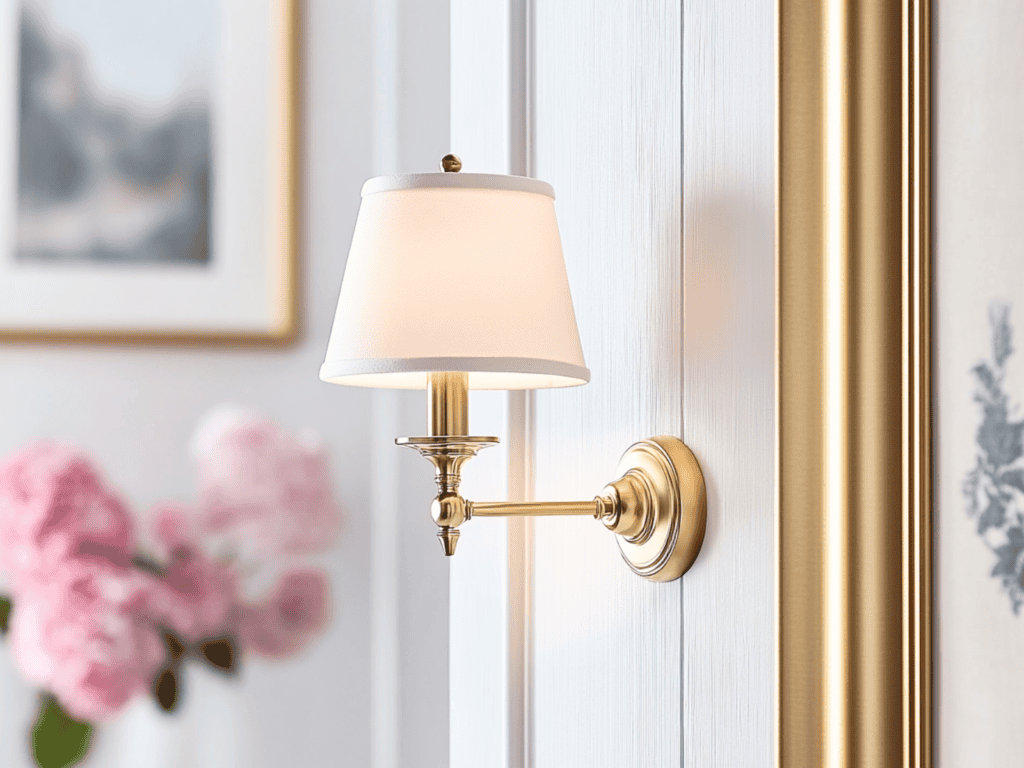
9. Optimize Lighting and Cable Management
Types and Options
Wall sconces save table space, pendant lights hang from ceilings, LED strips add ambiance, and cable raceways hide wires neatly. Each option improves both function and aesthetics.
Selection and Installation Tips
Choose lighting that complements your decor. Ensure proper wiring for new fixtures. Use cable clips for neat wire management. Consider dimmer switches for flexibility. Follow safety guidelines for electrical work.
Integration and Efficiency Strategies
Layer lighting for different moods. Use smart bulbs for easy control. Combine lighting with other functions, like shelf lighting. Hide power strips behind furniture. Label cables for easy identification.

10. Create Specialized Vertical Solutions
Types and Options (for fitness and pets)
Wall-mounted exercise equipment saves space in an organized home gym. Vertical cat trees entertain pets. Fold-down desks create instant workspaces. Each solution addresses specific needs while saving floor space.
Selection and Installation Tips
Choose equipment that fits your lifestyle. Ensure walls can support specialized items. Use proper mounting hardware for safety. Consider clearance when items are in use. Opt for foldable options in tight spaces.
Customization and Safety Strategies
Pad wall-mounted equipment to reduce noise. Create vertical play zones for pets. Use non-slip surfaces for safety. Ensure all installations are secure. Regularly check and maintain specialized solutions.
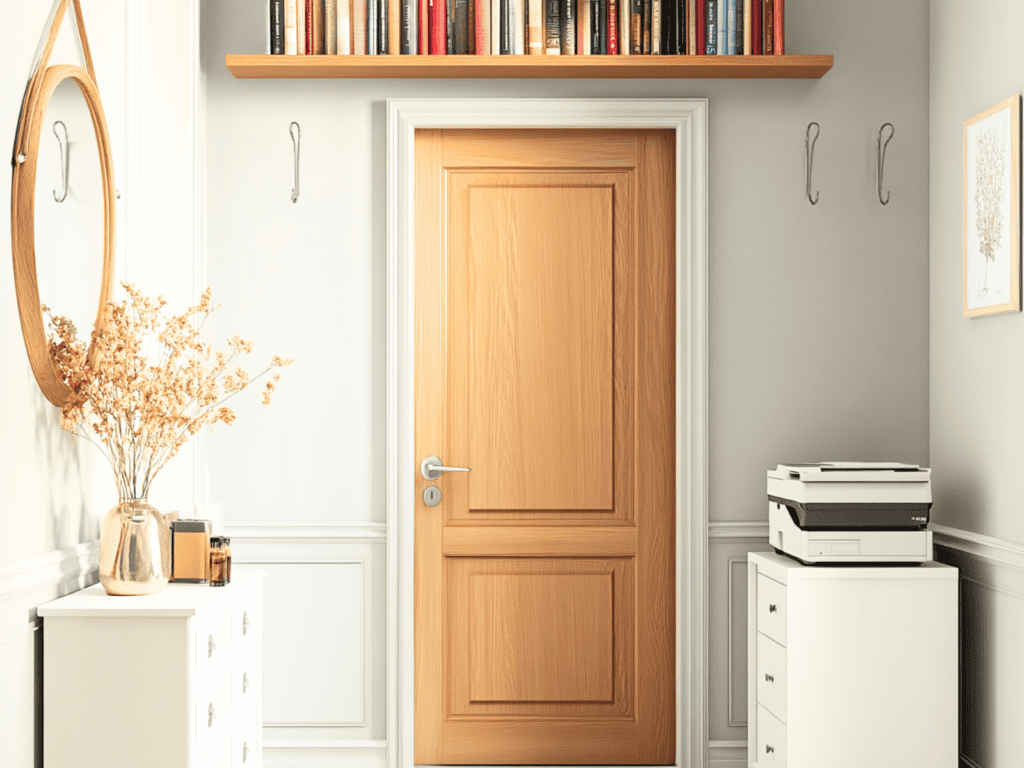
Tips for Success: Maximizing Your Vertical Space
- Negative Space Utilization: Identify and use often-overlooked spaces, such as the sides of kitchen cabinets or the space above doors.
- Optical Illusions: Use mirrors strategically with vertical storage to create the illusion of more space and amplify light.
- Tech Integration: Incorporate smart home devices into your vertical storage solutions for added functionality (e.g., voice-activated lighting on high shelves).
- Vertical Filing Solutions: Create wall-mounted filing systems for important documents to free up floor space typically used by filing cabinets.
- Rental-Friendly Options: For renters, explore tension rod systems or freestanding vertical solutions that don’t require permanent installation.
Remember: Vertical organization is an ongoing process. Don’t hesitate to adjust your systems as your needs change.
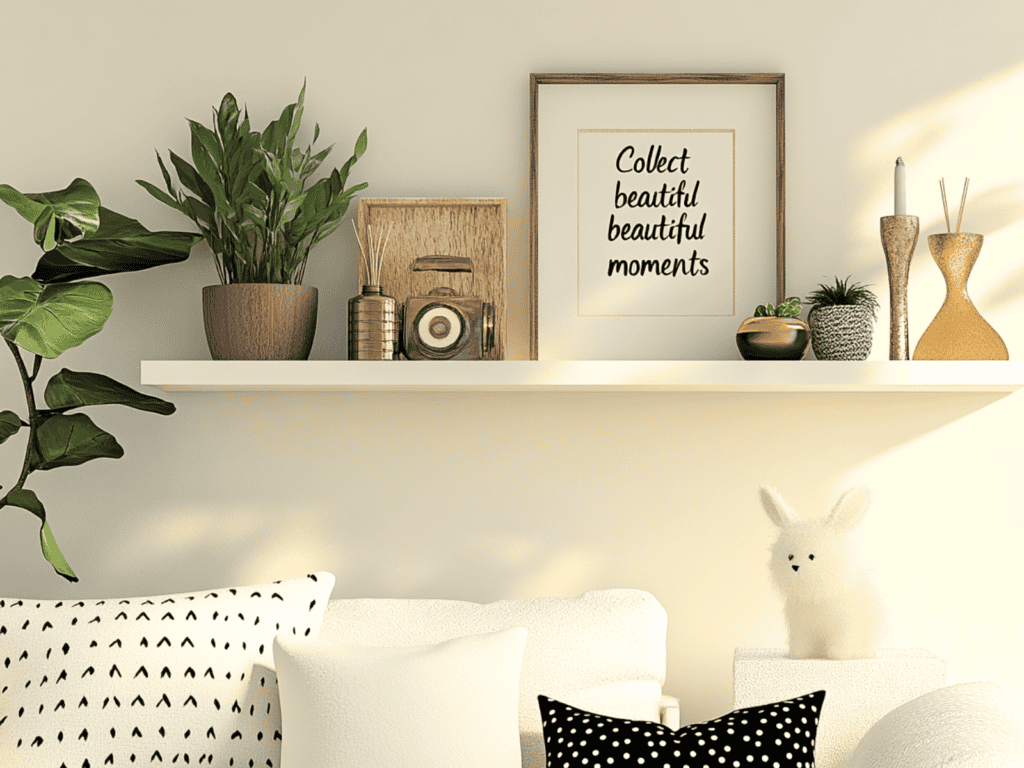
Conclusion
Embracing vertical space solutions is more than just a storage strategy—it’s a transformative approach to home living. By implementing the ideas we’ve explored, you’re not just organizing; you’re reimagining your living space from floor to ceiling.
Remember, the key to success lies in personalization. Your home’s vertical potential is as unique as you are. Experiment with different combinations of these solutions to find what works best for your space and lifestyle. Don’t be afraid to think creatively—that awkward corner or bare wall could become your favorite feature with the right vertical touch.
As you embark on this vertical journey, keep in mind that it’s an evolving process. Your needs may change over time, and your space should adapt with you. Regular reassessment and tweaking of your vertical systems will ensure they continue to serve you effectively.
Maximizing your vertical space is about creating a home that works smarter, not harder. It’s about crafting an environment that feels open, organized, and uniquely you. So take a fresh look at your surroundings, envision the possibilities above eye level, and start your vertical transformation today. Your future self—and your newly spacious home—will thank you.

